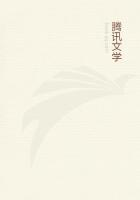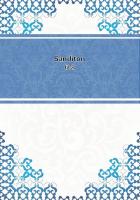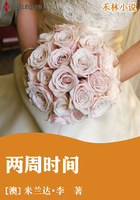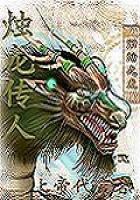And the magnificent man will spend such sums for honour's sake; for this is common to the virtues. And further he will do so gladly and lavishly; for nice calculation is a niggardly thing. And he will consider how the result can be made most beautiful and most becoming rather than for how much it can be produced and how it can be produced most cheaply. It is necessary, then, that the magnificent man be also liberal. For the liberal man also will spend what he ought and as he ought; and it is in these matters that the greatness implied in the name of the magnificent man-his bigness, as it were-is manifested, since liberality is concerned with these matters; and at an equal expense he will produce a more magnificent work of art. For a possession and a work of art have not the same excellence. The most valuable possession is that which is worth most, e.g. gold, but the most valuable work of art is that which is great and beautiful (for the contemplation of such a work inspires admiration, and so does magnificence); and a work has an excellence-viz. magnificence-which involves magnitude. Magnificence is an attribute of expenditures of the kind which we call honourable, e.g. those connected with the gods-votive offerings, buildings, and sacrifices-and similarly with any form of religious worship, and all those that are proper objects of public-spirited ambition, as when people think they ought to equip a chorus or a trireme, or entertain the city, in a brilliant way. But in all cases, as has been said, we have regard to the agent as well and ask who he is and what means he has; for the expenditure should be worthy of his means, and suit not only the result but also the producer. Hence a poor man cannot be magnificent, since he has not the means with which to spend large sums fittingly; and he who tries is a fool, since he spends beyond what can be expected of him and what is proper, but it is right expenditure that is virtuous. But great expenditure is becoming to those who have suitable means to start with, acquired by their own efforts or from ancestors or connexions, and to people of high birth or reputation, and so on; for all these things bring with them greatness and prestige. Primarily, then, the magnificent man is of this sort, and magnificence is shown in expenditures of this sort, as has been said; for these are the greatest and most honourable. Of private occasions of expenditure the most suitable are those that take place once for all, e.g. a wedding or anything of the kind, or anything that interests the whole city or the people of position in it, and also the receiving of foreign guests and the sending of them on their way, and gifts and counter-gifts; for the magnificent man spends not on himself but on public objects, and gifts bear some resemblance to votive offerings. A magnificent man will also furnish his house suitably to his wealth (for even a house is a sort of public ornament), and will spend by preference on those works that are lasting (for these are the most beautiful), and on every class of things he will spend what is becoming; for the same things are not suitable for gods and for men, nor in a temple and in a tomb. And since each expenditure may be great of its kind, and what is most magnificent absolutely is great expenditure on a great object, but what is magnificent here is what is great in these circumstances, and greatness in the work differs from greatness in the expense (for the most beautiful ball or bottle is magnificent as a gift to a child, but the price of it is small and mean),-therefore it is characteristic of the magnificent man, whatever kind of result he is producing, to produce it magnificently (for such a result is not easily surpassed) and to make it worthy of the expenditure.
Such, then, is the magnificent man; the man who goes to excess and is vulgar exceeds, as has been said, by spending beyond what is right.
For on small objects of expenditure he spends much and displays a tasteless showiness; e.g. he gives a club dinner on the scale of a wedding banquet, and when he provides the chorus for a comedy he brings them on to the stage in purple, as they do at Megara. And all such things he will do not for honour's sake but to show off his wealth, and because he thinks he is admired for these things, and where he ought to spend much he spends little and where little, much. The niggardly man on the other hand will fall short in everything, and after spending the greatest sums will spoil the beauty of the result for a trifle, and whatever he is doing he will hesitate and consider how he may spend least, and lament even that, and think he is doing everything on a bigger scale than he ought.
These states of character, then, are vices; yet they do not bring disgrace because they are neither harmful to one's neighbour nor very unseemly.
3
Pride seems even from its name to be concerned with great things;what sort of great things, is the first question we must try to answer. It makes no difference whether we consider the state of character or the man characterized by it. Now the man is thought to be proud who thinks himself worthy of great things, being worthy of them;for he who does so beyond his deserts is a fool, but no virtuous man is foolish or silly. The proud man, then, is the man we have described. For he who is worthy of little and thinks himself worthy of little is temperate, but not proud; for pride implies greatness, as beauty implies a goodsized body, and little people may be neat and well-proportioned but cannot be beautiful. On the other hand, he who thinks himself worthy of great things, being unworthy of them, is vain; though not every one who thinks himself worthy of more than he really is worthy of in vain. The man who thinks himself worthy of worthy of less than he is really worthy of is unduly humble, whether his deserts be great or moderate, or his deserts be small but his claims yet smaller. And the man whose deserts are great would seem most unduly humble; for what would he have done if they had been less?















